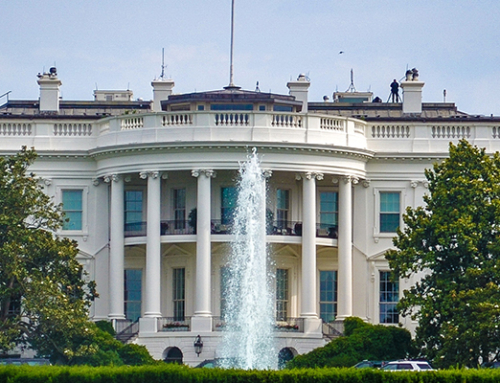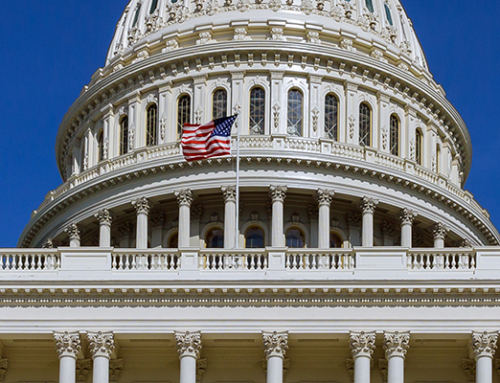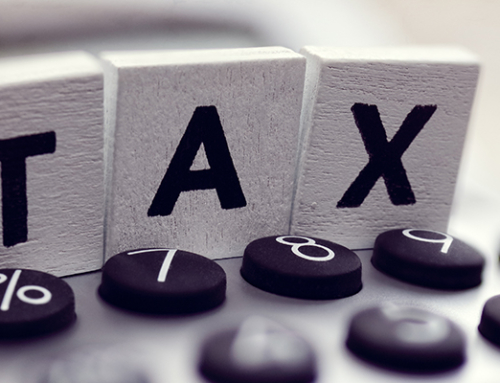On November 5, 2018 the US Department of Labor published new UI Drug Testing Regulations for Comment. Comments may be submitted in response to the regulations by January 4, 2019. See the link above for instructions.
New Interpretation Regulations
In this NPRM, the Department now proposes a substantially different and more flexible approach to the statutory requirements than the 2016 Rule, enabling States to enact legislation to require drug testing for a far larger group of UC applicants than the previous Rule permitted. This flexibility is intended to respect the diversity of States’ economies and the different roles played by employment drug testing in those economies. The Department recognizes that imposing a nationally uniform list—like the one-size-fits-all approach that the Department attempted in the disapproved 2016 rule—may not fully effectuate Congress’ intent, as expressed in 42 U.S.C. 503(l)(1)(A)(ii), that States be permitted to drug test when the only suitable work for an applicant is in an occupation that regularly conducts such tests.
Employers exercise a variety of approaches and practices in conducting drug testing of employees. Some States have laws that impose very minimal restrictions on employer drug testing of employees while other States have very detailed and proscriptive requirements about what actions the employer can take. That diversity of State treatment also renders an exhaustive list of such occupations impractical.
The proposed Rule therefore lays out a flexible standard that States can individually meet under the facts of their specific economies and practices. In the Departments’ view, the Rule’s substantially different scope and fundamentally different approach satisfies the requirements of the CRA, at least where, as here, the Department is under a continuing statutory obligation to propose regulations.
UWC is reviewing the newly published Notice of Proposed Rulemaking and will develop comments for submission.
History
President Obama signed the Middle Class Tax Relief and Job Creation Act of 2012 (the Act), Public Law 112–96, on February 22, 2012. Title II of the Act amended 42 U.S.C. 503, to add a new subsection (l) permitting States to enact legislation to require drug testing of UC applicants as a condition of UC eligibility under two specific circumstances.
The first circumstance is if the applicant was terminated from employment with the applicant’s most recent employer because of the unlawful use of a controlled substance. See 42 U.S.C. 503(l)(1)(A)(i).
The second circumstance is if the only available suitable work (as defined in the law of the State providing the UC) for an individual is ‘‘in an occupation that regularly conducts drug testing (as determined under regulations issued by the Secretary).’’ See 42 U.S.C. 503(l)(1)(A)(ii).
States are not required to drug test in either circumstance; the law merely makes it permissible for States to enact legislation to do so when one of the two circumstances is present.
A State may deny UC to an applicant who tests positive for drug use under either of these circumstances. See 42 U.S.C. 503(l)(1)(B).
On October 9, 2014, the Department of Labor published an NPRM determining occupations that regularly conduct drug testing for the purposes of 42 U.S.C. 503(l)(1)(A)(2). See 79 FR 61013 (Oct. 9, 2014).
UWC submitted comments identifying a number of the interpretations in regulation and in UI PL No. 01-15 that appeared to be inconsistent with the statute as enacted.
- The proposed rules in Section 620.3 would unduly restrict the list of occupations to those identified as of October 9, 2014.
- The proposed rules in Section 620.4 (a) would unduly limit drug testing to only the period after an applicant applies and before the applicant files a continued claim for unemployment compensation.
- The proposed rules and UI PL No. 1-15 would impose an unnecessary burden on the agency to determine whether “suitable work” in a specific occupation is not available in the local labor market.
- The proposed rule and UI PL No. 1-15 unduly mandate that states follow drug testing guidelines that meet standards by the Mental Health Services Administration or the U.S Department of Transportation.
- The proposed rules, and by reference UI PL No. 1-15, fail to recognize that Section 303(a) of the Social Security Act, as amended particularly by the Middle Class Tax Relief and Job Creation Act of 2012 in Section 2101, substantively changed federal requirements with respect to “timeliness” and “due process”.
After reviewing the comments received, the Rule, as proposed in the NPRM, was modified, and on August 1, 2016. The Secretary of Labor (Secretary) published a regulation determining each occupation ‘‘that regularly conducts drug testing’’ in the Federal Register as 20 CFR part 620. It became effective on September 30, 2016.
The 2016 Rule identified seven specific occupations that regularly conduct drug testing: An occupation that requires the employee to carry a firearm, along with six specific occupational categories identified in Federal regulations in which the employee must be tested. The Rule also included within its determination any occupation specifically identified in a State or Federal law as requiring an employee to be tested for controlled substances. Finally, the Rule defined key terms as used in the Act. At the same time the Department published its previous NPRM, it issued guidance to States in Unemployment Insurance Program Letter No. 01–15 to address other issues related to the implementation of drug testing under 42 U.S.C. 503(l).
The revised regulations in 2016 continued to include interpretations that were deemed inconsistent with the intent of Congress. A House joint resolution was enacted.
On March 31, 2017, President Trump signed a resolution of disapproval under the Congressional Review Act (CRA) (5 U.S.C. 801 et seq.) as Public Law 115–17.
The joint resolution was enacted under the authority of 5 U.S.C. 801(b), enacted by the CRA, Public Law 104– 121. Section 801(b) provides that a disapproved rule cannot take effect, and that such a rule cannot be reissued in substantially the same form unless authorized by Congress. Consistent with this law, the Department published the notice of revocation of the regulation in the Federal Register at 82 FR 21916 (May 11, 2017). Because the statute was not repealed or amended following the resolution of disapproval, the statute continues to require the Secretary to issue regulations to enable the determination of occupations in which drug testing regularly occurs. But the CRA prohibits the Department from reissuing the rule ‘‘in substantially the same form’’ or issuing ‘‘a new rule that is substantially the same’’ as the old rule. 5 U.S.C. 801(b). To comply with both the mandate to issue regulations to enable the determination of occupations in which drug testing regularly occurs, and the CRA prohibition on reissuing the rule ‘‘in substantially the same form,’’ the Department has now considered the Act, the 2016 Rule, and the congressional notice of disapproval.






